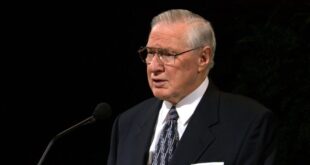Saying Goodbye to Rite Aid: More Than Just a Store
This week I walked by my neighborhood Rite Aid and saw workers removing the pharmacy sign for the last time. It felt like the end of an era. Rite Aid was more than a store. It was a gathering place and a familiar part of the community, staffed by neighbors who cared for generations of families. Like thousands of other Rite Aid locations, ours is closing its doors because of the opioid crisis, a tragedy that has touched so many lives.
The Real Source of the Crisis: Who Destroyed Lives?
The opioid epidemic did not happen by accident. Lives were destroyed and families were torn apart because of the reckless actions of powerful players. Drug companies designed and marketed addictive medications, pouring millions into advertising and influence. Pharmaceutical sales reps were rewarded for pushing these drugs as widely as possible, often ignoring clear warning signs. Some doctors prescribed these painkillers too easily, writing scripts for aches and pains without asking deeper questions. Many Americans, including Latter-day Saints, were given opioids for the most minor injuries and quickly found themselves in the grip of addiction.
Billions of dollars were made while communities suffered. The harm was not hidden. Stories of addiction, overdose, and broken families became heartbreakingly common. Companies and individuals at the top reaped massive profits while ordinary people paid the price.
Rite Aid: The Convenient Scapegoat
As the crisis grew, America looked for someone to blame. Instead of real accountability for the corporations, drug reps, and doctors who fueled this epidemic, the legal spotlight turned to pharmacies like Rite Aid. In July 2024, Rite Aid agreed to a $410 million settlement with the Department of Justice, accused of not catching every suspicious prescription and not stopping every potential misuse. The DOJ called them out for filling unlawful prescriptions, and the lawsuits mounted until bankruptcy became unavoidable.
Yet the truth is that Rite Aid’s employees often had little power to refuse a doctor’s order or to challenge the system that had already failed. Pharmacies were placed in an impossible position and then blamed when the consequences of corporate greed and medical carelessness came due. As the Justice Department’s release and coverage in the New York Times and Philadelphia Inquirer reveal, Rite Aid became the face of a disaster created by others.
Much of the settlement money and the billions paid out in opioid lawsuits have gone to government budgets, not to the families who lost everything. As CBS News explains, most victims never see real support or healing.
An LDS Perspective: Truth, Accountability, and Compassion
As Latter-day Saints, we know the Lord values both truth and mercy. Agency and accountability are gospel principles. We are called to defend the vulnerable, to seek justice, and to refuse to accept scapegoats in place of real reform. We should mourn with those who mourn, comfort those who stand in need of comfort, and speak out when systems are broken.
Jesus taught, “Ye shall know the truth, and the truth shall make you free.” It is not enough to look away or accept easy answers. The pain and loss caused by drug companies, some doctors, and drug reps must be acknowledged. Real change will come only when we demand honesty, transparency, and healing for the true victims.
Hope, Healing, and Standing for What Is Right
The loss of Rite Aid is a wound for many communities, but it can also be a turning point. Let us remember the families who lost loved ones, the individuals who still struggle, and the communities that need healing. Let us be voices for justice, compassion, and lasting accountability.
Latter-day Saints can lead by example: seeking the truth, caring for our neighbors, and working for systems that value both justice and mercy. We can refuse to let scapegoats bear the burden for the sins of the powerful.




